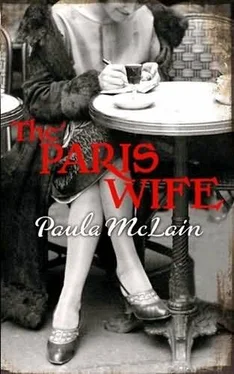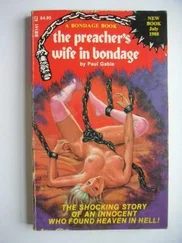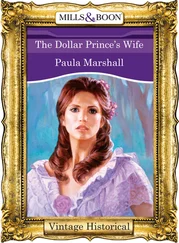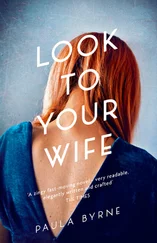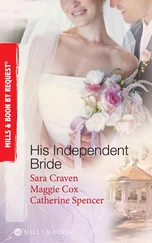“Let’s really bet on him,” I said. “Do we have enough?”
“Maybe we do,” he said.
“Let’s spend it anyway, even if we don’t.”
He laughed and went off to place the bet, still smiling at me. He loved it when I was bold.
“Are you still stuck on this horse?” he asked when he came back.
“I am.”
“Good. He’s got six months of living expenses on him.”
“You don’t mean it.”
“I do,” he said, and we crowded up to the rail with the rest, both of us tingling with risk.
My horse took the lead from the start. By the second hurdle, nothing could touch him. He was four lengths ahead by the fourth hurdle, a brandy-colored blur.
“He’s doing it,” I said, feeling flushed. My stomach was taut and knotted.
“He’s doing it all right,” Ernest said, watching the other horses break. But it was too late for any of them because Chèvre d’Or was too fast and too far ahead-too good as he was, ten lengths ahead, then more. The favorite gained and took the others, his jockey’s whip slicing, but my horse was in his own race.
He was twenty lengths ahead and twenty paces from the finish when it happened. As beautiful as the rest had been, that’s how ugly it was when he fell at the last jump. If he was brandy before, now he was a busted wheelbarrow. He was sticks and string, a child’s toy breaking with a crack. It was so terrible, I couldn’t watch. I buried my face in Ernest’s shoulder and didn’t see the end of the race, the horses parting around the fallen animal, the favorite taking everything he hadn’t earned.
I cried half the way home on the train, through the gloomy neighborhoods with the clotheslines and the garbage and the children dressed in rags, trying to forget the day and what we’d seen.
When our first anniversary came, we decided to spend it with Chink, in Cologne, and took a boat down the Rhine to meet him. The weather was still very warm then, and the days were lovely and long, and when we met up with Chink we were all very happy to be together. He was good for us, and we were good for him, and Cologne was beautiful.
One afternoon I was lying back on the grass watching Ernest and Chink fish. Ernest reached into the duffel bag on the bank next to him and pulled out a bottle of cold white wine that he uncorked with his teeth. In his other hand he held the rod, its line well out, the water moving around it in gentle eddies. There was a nice breeze, and yellow pollen blew by in small clouds and sifted down on us from the trees.
“You boys look like something out of a painting,” I said, squinting up at them.
“We have an admirer,” Ernest said to Chink.
I got up out of the grass and walked over to Ernest and watched him closely for several minutes. “Show me how it’s done,” I said.
“Tired of admiring already?”
“No.” I smiled. “But I’d like to give it a try.”
“All right, then.” He stood behind me on the soft, grassy bank and showed me how to point the rod. I swung my arm back and forward again in a smooth arc, just as he said, and managed to release the reel perfectly. It sailed out into the current like a dream.
“That felt good,” I said.
“That’s how you know you’ve done it right,” Chink said.
“What now?”
“Now you wait,” Ernest said, and walked over to the rod case. Before he’d even reached it I felt a small tug at the line, then another stronger tug. On instinct, I pulled up and the hook struck. I could feel the fish working against it.
“Hey,” Chink said, watching. “She’s a ringer.”
Ernest rushed back and helped me land the trout, and then the fish was on the grass, pale brown and spotted.
“I feel a little sorry for him,” I said.
“You can throw him back if you’d like,” Chink said.
“Like hell she will,” Ernest said, laughing.
“No, I want to eat him. I want to know if it tastes different when you catch it yourself.”
“Good girl,” Ernest said. “It does, you know.”
“I thought so.”
“This one’s got the killer instinct,” Chink said, and we all laughed.
“You might as well know it all,” Ernest said later when I had landed three trout, one after the other. He showed me how to clean and gut the fish and rinse the body well in the stream for cooking.
“I’m not disgusted,” I said as we worked.
“I know it. I can tell.”
We roasted my three over the fire on sticks, as well as the other half dozen Chink and Ernest had caught between them.
“I like mine best,” I said, licking salt off my fingertips.
“I like yours best, too,” Ernest said, and opened another bottle of wine as the sky softened and evening came on.
In Cologne itself, the mood was more troubled. At the British Occupation Garrison, where Chink had recently been stationed, an angry mob had vandalized a statue of Wilhelm II on horseback, wrenching down the huge iron sword and shattering off the spurs. Other rioters had murdered a German policeman, chasing him into the river and then severing his fingers when he tried to hold on to a bridge to save himself. From a distance, the city looked like something out of a fairy tale with red-roofed houses and villagers dressed in lederhosen, but like the rest of Allied-occupied Germany, it was in a state of supreme unrest.
A few days later, on September 14, we were in a café catching up on our newspapers when we learned that the Turkish port city of Smyrna was burning. The Greco-Turkish war had been raging for three years, since the repartitioning of the Ottoman Empire that came out of the war, but the conflict had finally broken with this fire. No one knew who was responsible. The Greeks blamed the Turks and vice versa, and the only clear thing was the tragic results. The harbor had been set alight with petroleum, as had many of the Greek and Armenian quarters in the town. People were driven out of their houses and into the streets. Scores drowned in the harbor, and others were slaughtered where they stood. Refugees were fleeing into the hills. We felt very chastened where we sat in the café, having our fine lunch, for not having been more aware of the conflict.
“I imagine I’ll be there soon enough,” Chink said. His expression was stern.
“Maybe I will, too,” Ernest said, and I felt a cold rush go through me.
“You don’t really think so,” I said.
“I don’t know. It’s possible.”
“I’ve always wanted to see Istanbul,” Chink said.
“ Constantinople ’s a better word, though,” Ernest said. “Or Byzantium. ”
“Right,” Chink said. “Well, either way, it’s in the crapper now, isn’t it?”
Back in Paris, we hadn’t even unpacked before a telegram came for Ernest from the Star . John Bone was sending him to Turkey to report on the conflict, just as he’d suspected. He would leave in three days’ time. He’d just read the news, the torn envelope still in his hands, when I felt myself come crashing down.
“What is it?” Ernest said, watching my face fall. “I won’t be long. It will be like Genoa, the same as that. And then I’ll be home and we’ll be together again.”
But I had never told him about how low I’d been when he was away in Genoa, how every day without him had been a struggle against myself.
“I don’t want you to go,” I said.
“What?”
“Tell them you can’t, that I’m ill.”
“You’re not making any sense.”
“But I am, don’t you see? I’m telling the truth for once.”
“No, you’re being childish. This is a tantrum, and I want you to stop it now.”
That’s when I began to cry, which was worst of all; he hated tears.
Читать дальше
